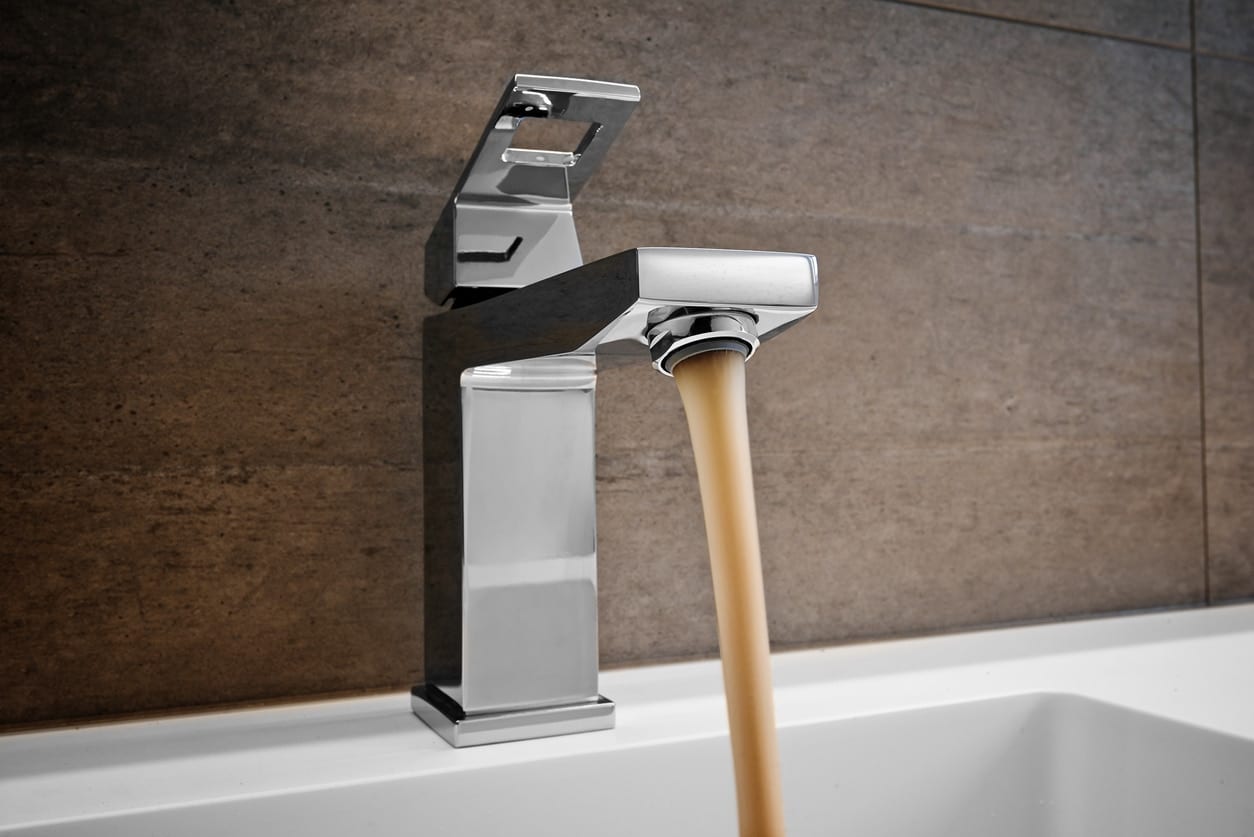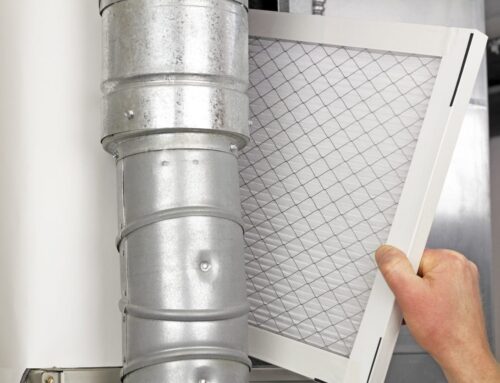
One of the problems that can arise with a water heater is smelly or discolored water. To fix this problem, you need to first figure out where the odor or discoloration is coming from. Answering these questions will go a long way to help solve the issue at hand:
- Is the problem new?
- Is it isolated to one faucet?
- Is it only happening first thing in the morning?
- Is it happening after the water has not been used for a while?
- Does the problem clear up after you run the water for a few minutes?
- Is it isolated to the hot or cold faucet?
Coloration
Brown, yellow, or red water could indicate rust in your water; the rust could be coming from the pipes in your house, from the pipes coming into your house or the water heater. The most common solution for this type of problem is to install a water softener or water filtration system in your home. The iron present in the water doesn’t pose any real health issues; it does, however, tend to make your water taste metallic and can even stain clothing and dishes.
Green water could indicate copper pipe corrosion; a lot of houses contain copper pipes in their plumbing systems. When copper corrodes, it produces bluish-green tint and may stain your sink or tub. This color could also be caused by lead leaching into the plumbing from solder joints in older plumbing. Lead in drinking water can pose a health risk and should not be taken lightly.
If it cannot be remedied by filtering, it may be necessary to replace the metal or copper plumbing with the approved plastic plumbing.
White or tan particles in your water can be attributed to pipes or the water heater. The white particles are normally calcium or magnesium and are not generally harmful to ingest, but they can clog pipes and drains over time.
A standard filtration system can usually solve this problem. However, it could be caused by the elements in an electric water heater calcifying. This can occur when the calcium and magnesium begin to collect on the elements in your electric water heater. This can be fixed by removing and cleaning the heating elements. The steps for this process are as follows:
- Turn off the power to the water heater in your electrical panel, and then check the power wires at the water heater with a multimeter to make sure that the power is off.
- Drain the water out of the tank using a common garden hose attached to the drain valve at the bottom of the water heater near the floor.
- Remove the elements from the water heater. You can clean them with a mixture of vinegar and water, or sodium carbonate and water. You should use hot water and a scrub brush to clean the elements; if you notice any corrosion you should replace the element with a new one.
- After the elements are cleaned, return them to the water heater, fill the tank, and turn the power back on.
Addressing Bacteria
Bad smells, such as sulfurous, decayed, or sewage-like scents, can be due to bacteria growing in your water heater. Usually, if bacteria is growing in the water heater, the hot water has not been used for a while, the water has been turned off for some time, or the thermostat is set too low.
The bacteria are not harmful but the smell and taste can be off-putting. You should have a plumber help you in the case of bacteria. The rotten egg odor that is sometimes present in a home’s plumbing system can be caused by a corroded anode rod in the water heater. This can be fixed by replacing the anode rod. The steps are as follows:
- Turn off the water heater and partially drain the water tank.
- Remove the existing anode rod and discard it.
- Before installing the new anode rod, remember to use Teflon tape on the threads toprevent leaks. Insert the new anode rod into the tank and tighten it down.
- Refill the tank and turn the water heater back on. This should eliminate any rotten eggodor from your hot water heater.
Hard water can also cause odor and sediment issues. Installing a water filter and/or a water softener usually remedies the problem.
This article was originally published at thespruce.com. If you are currently experiencing a problem with your water heater, don’t wait any longer, contact us today and we can come take a look and help you get back to clean, normal smelling water![/vc_column_text][vc_column_text]Water Heater Problem: Discolored or Smelly Water
YouTube[/vc_column_text][/vc_column][/vc_row]
Save More, Stay Informed!
Sign up for our newsletter and be the first to receive:
✅ Exclusive Sales & Rebates on Mitsubishi Heat Pumps.
✅ Industry News and Expert HVAC Tips.
✅ Updates That Help You Save Energy and Money.





